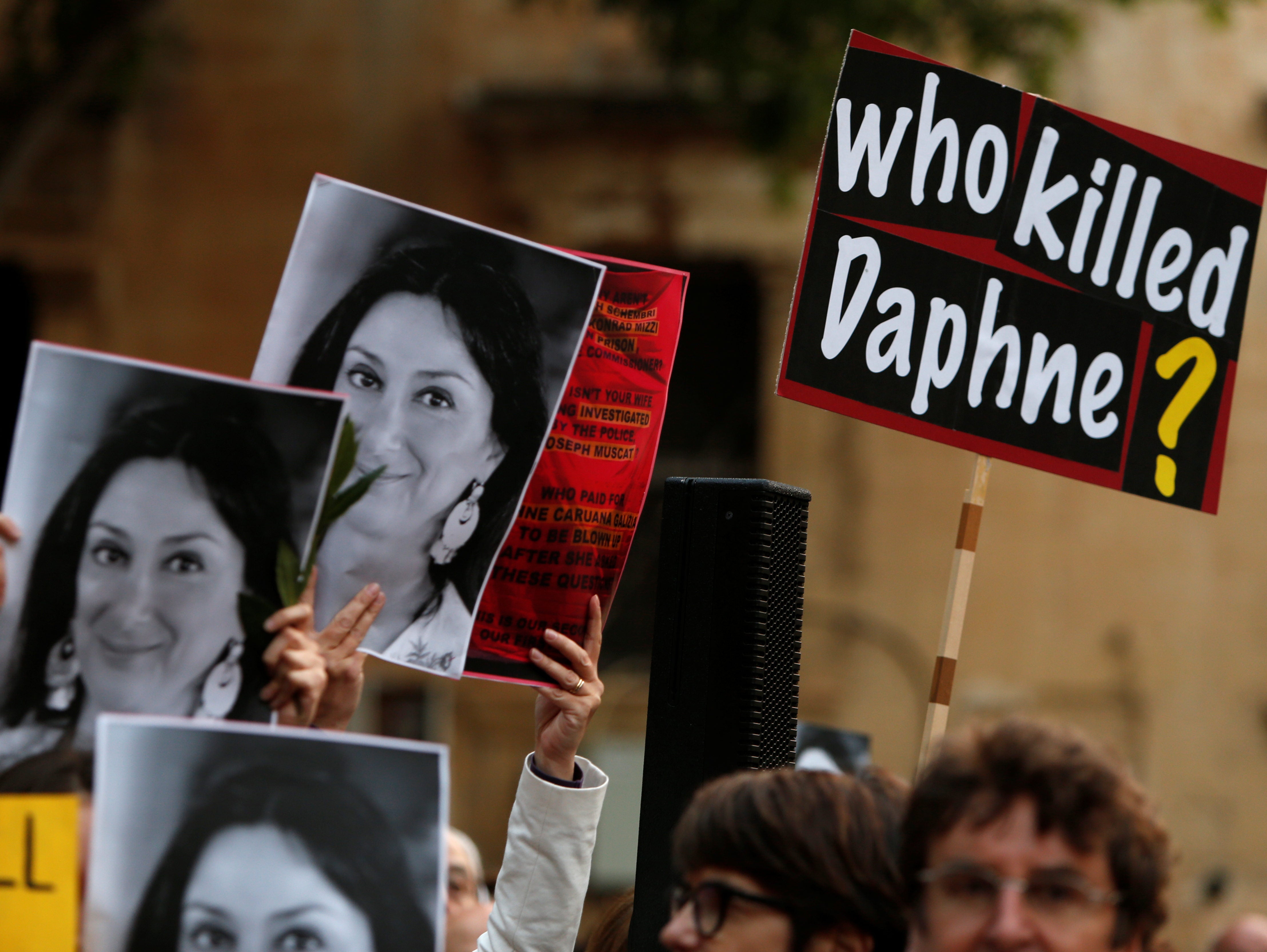
A leading European human rights organisation has pushed for the Maltese government to open an independent public inquiry into the murder of journalist Daphne Caruana Galizia within the next three months.
The report was approved by the Council of Europe’s parliamentary assembly today. The council is independent from the European Union and has 47 member states with decisions made through its parliamentary assembly.
The report was written by Dutch politician Pieter Omtzigt, who has been appointed as a special rapporteur on Caurana Galizia’s death. He also raised “serious concerns” about an ongoing police probe into her murder.
Caruana Galizia, 53, was investigating money laundering and corruption in Malta when she was killed by a car bomb near her home in October 2017.
Three men charged with her murder have still not faced trial and could be released in two months.
The council’s report listed several “serious concerns” about the investigation into her murder and said “weaknesses of the rule of law in general and the criminal justice system in particular” were directly relevant to worries about the response of authorities to her assassination.
Its list of concerns included fears about several authority figures having to be recused from the case over conflicts of interest, the possibility that Maltese intelligence services had prior knowledge of the bomb plot and “inflammatory and misleading statements” made by people close to Maltese Prime Minister Joseph Muscat.
The report said the call to establish a public inquiry into Caruana Galizia’s death “at the earliest opportunity, within three months” was made under article two (right to life) of the European Convention on Human Rights.
The report also raised several concerns about the rule of law in Malta, referring to a lack of protection for whistleblowers who report to the media, Prime Minister Muscat’s power to appoint civil servants and judicial independence in the country, among other issues.
The assembly said that the rule of law in Malta was “seriously undermined by the extreme weakness of its system of checks and balances”.
The report added: “Despite certain recent steps, Malta still needs fundamental, holistic reform, including subjecting the office of Prime Minister to effective checks and balances, ensuring judicial independence and strengthening law enforcement and other rule of law bodies.”
Press Gazette has contacted the Maltese Government for a response to the report.
The killing of Caruana Galizia has led to major concerns about press freedom in Malta, with the latest Reporters without Border’s (RSF) World Press Freedom Index ranking it 77th out of 180 countries.
The ranking was a fall of 12 places from the previous year’s index, which RSF said was partly due to Prime Minister Muscat having an ongoing libel case against the report and government refusals to hold an independent inquiry into the reporter’s assassination.
Speaking to Press Gazette at the launch of this year’s World Press Freedom Index, Maltese journalist Caroline Muscat said “a lot more can be done” by the UK and other EU countries in response to the killing of Caruana Galizia.
Picture: Reuters/Darrin Zammit Lupi
Email pged@pressgazette.co.uk to point out mistakes, provide story tips or send in a letter for publication on our "Letters Page" blog
